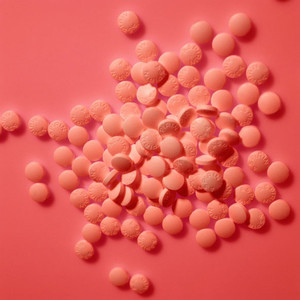The Ministry of Health Malaysia through the National Pharmaceutical Control Bureau (NPCB), which was set up in 1985, is the Malaysian authority that assures the quality of medicines in the country.
Malaysian guidelines for generics
Home/Guidelines
|
Posted 29/07/2011
 0
Post your comment
0
Post your comment

The NPCB is in charge of ensuring that all pharmaceutical and health products in the Malaysian market are of quality, safe and efficacious, regulated according to relevant legislations and used rationally.
With the increasing availability of generic products in the Malaysian market, it is imperative that the Ministry of Health Malaysia introduces a mechanism to further ensure that the available generic products are therapeutically equivalent to the innovator’s products and are clinically interchangeable. In practice, demonstration of bioequivalence is generally the most appropriate method of substantiating therapeutic equivalence between medicinal products.
The objective of the Malaysian guidelines for ‘the conduct of bioavailability and bioequivalence studies’ is to ensure that bioequivalence studies in Malaysia are conducted according to the international ethical and scientific standards based on good science
In Malaysia, guidelines for bioequivalence of generics were published by the NPCB in September 2000.
Bioequivalence guidelines
These guidelines are specifically related to bioequivalence studies for prescription generic products:
The conduct of bioavailability and bioequivalence studies
14 September 2000
portal.bpfk.gov.my/index.cfm?menuid=46&parentid=15
Related article
Malaysian guidelines for biosimilars
Source: NPCB, WHO
Policies & Legislation
Brazil and Mexico forge alliance to streamline medical approvals and boost production
EU accepts results from FDA GMP inspections for sites outside the US
Most viewed articles
The best selling biotechnology drugs of 2008: the next biosimilars targets
Global biosimilars guideline development – EGA’s perspective
Related content
US guidance to remove biosimilar comparative efficacy studies
New guidance for biologicals in Pakistan and Hong Kong’s independent drug regulatory authority
Canada poised to remove requirement for Phase III trials for biosimilars
European position paper on AI in medicinal product lifecycle
New guidance for biologicals in Pakistan and Hong Kong’s independent drug regulatory authority

Home/Guidelines Posted 20/10/2025
Canada poised to remove requirement for Phase III trials for biosimilars

Home/Guidelines Posted 22/07/2025
The best selling biotechnology drugs of 2008: the next biosimilars targets








Post your comment